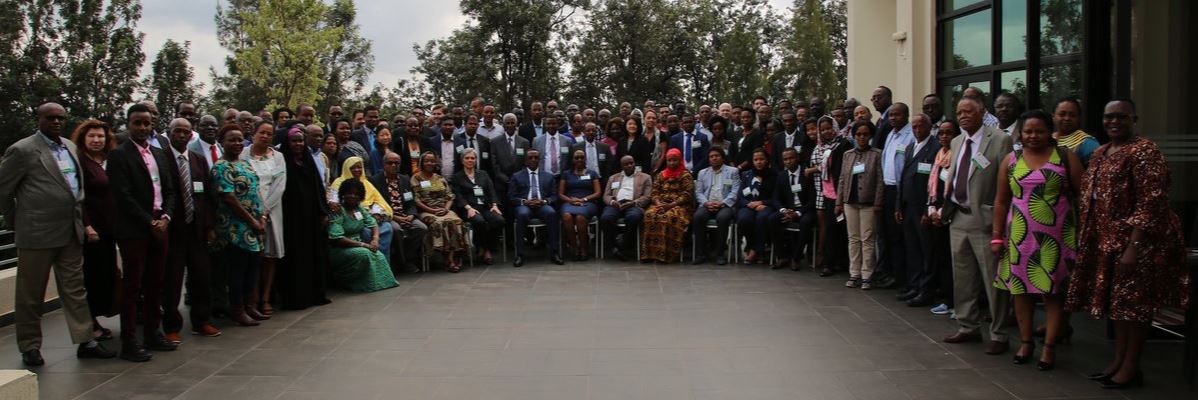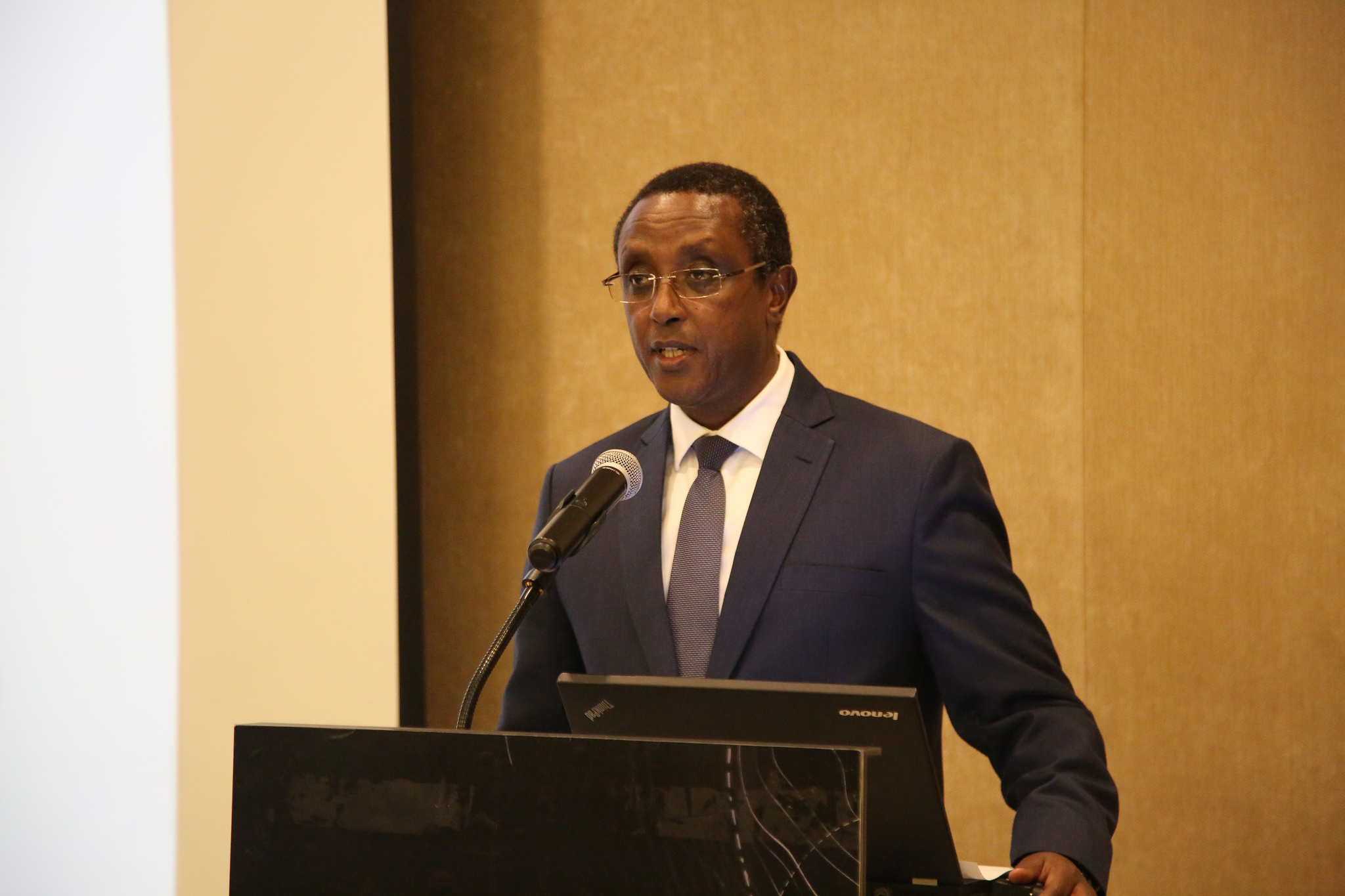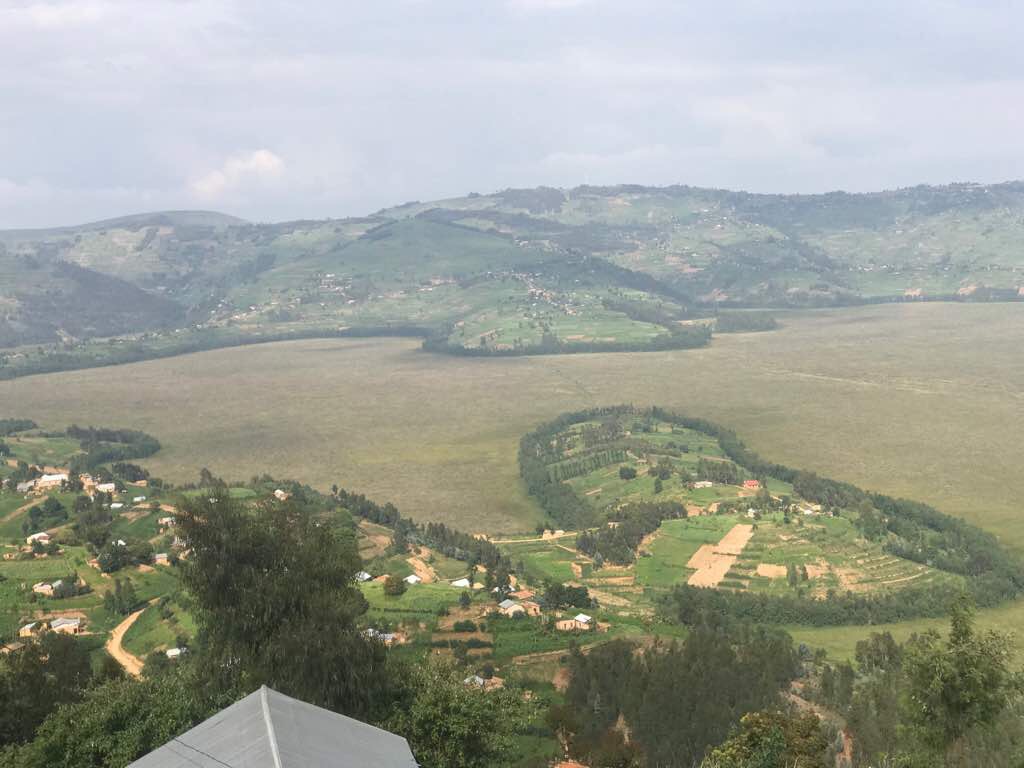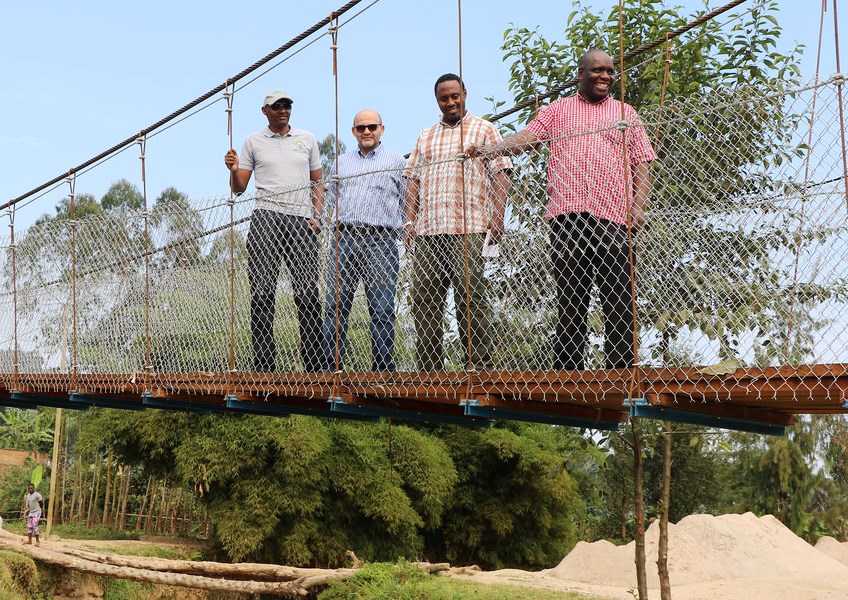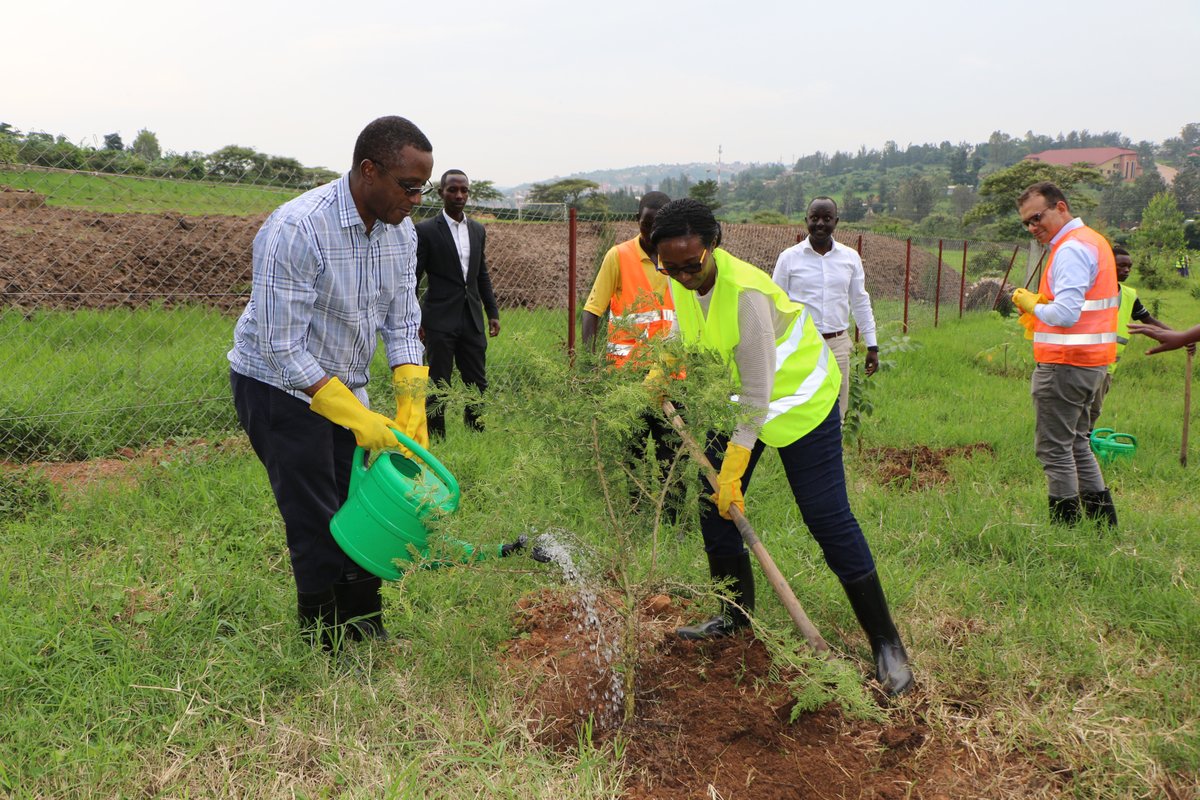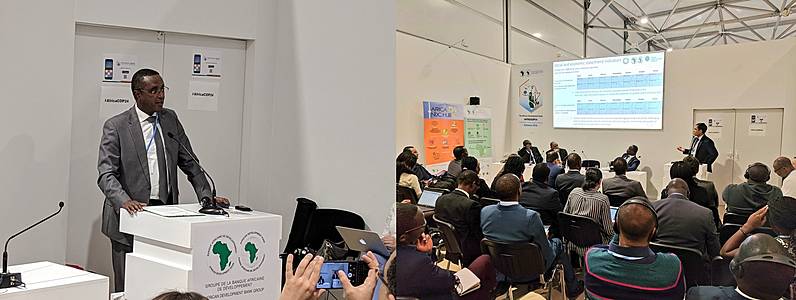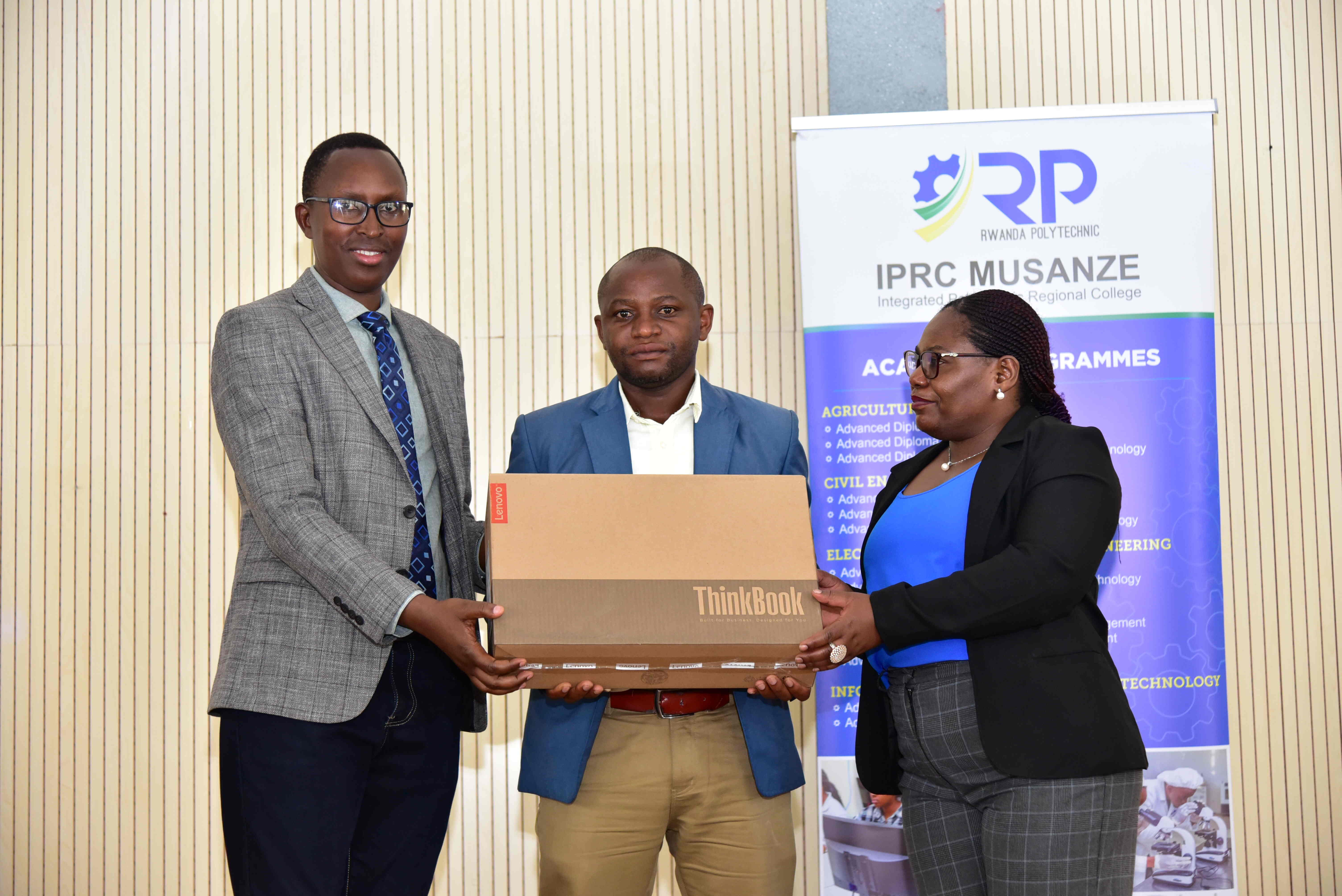
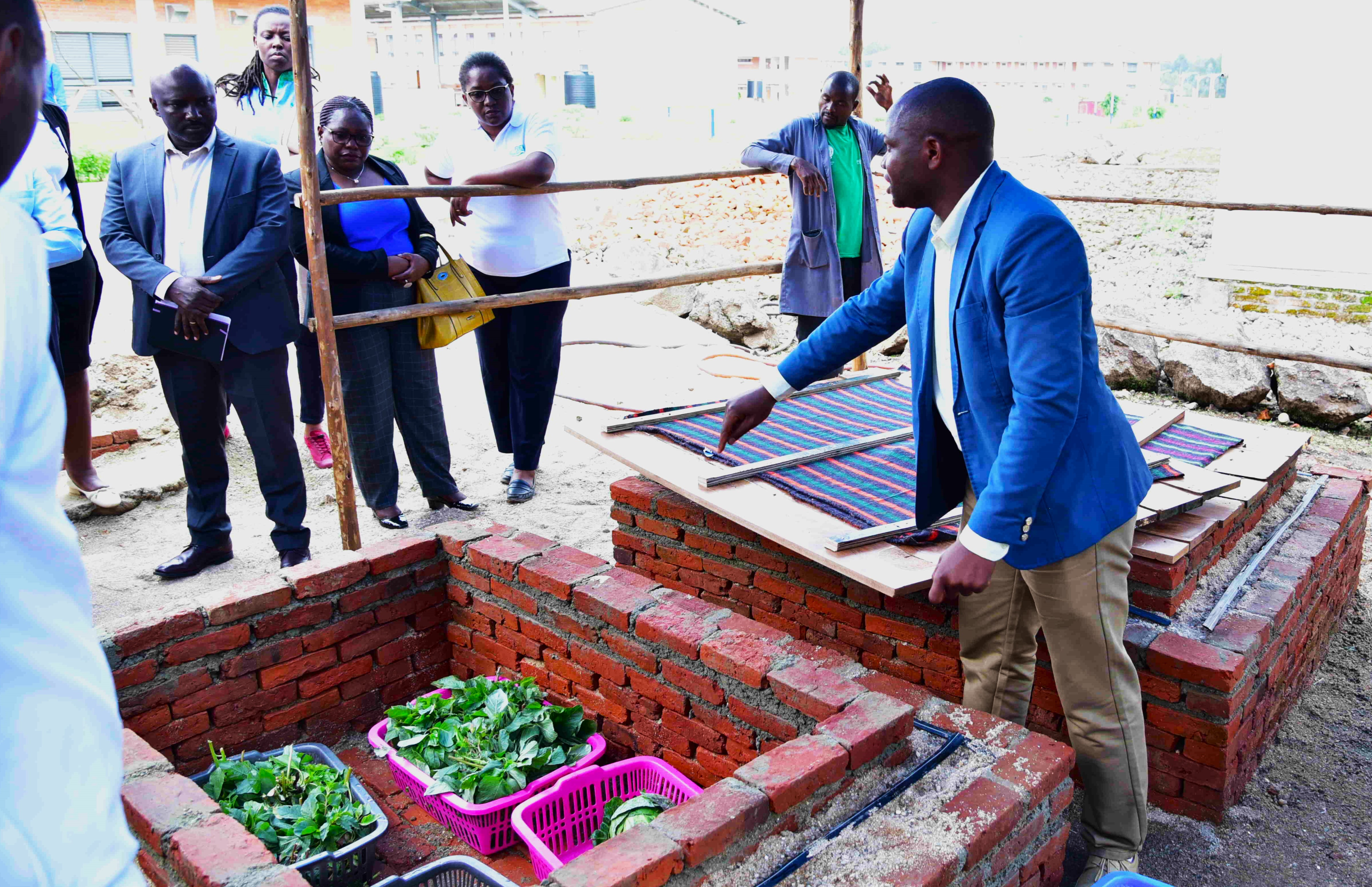
World Ozone Day: REMA recognizes students and lecturers with technologies and eco-friendly cooling solutions
Rwanda in September 2023 joined the rest of the world to mark the World Ozone Day with the theme “Montreal Protocol: Fixing the Ozone layer and mitigating Climate change”
This year’s theme emphasizes the vital role of the Montreal Protocol and its Kigali Amendment in not only protecting the Ozone layer but also mitigating climate change. World ozone day is celebrated annually on 16th September.
Rwanda celebrated Ozone Day on 18th September 2023 with students at Rwanda Polytechnic Institute of Science and Technology - Integrated Polytechnic Regional Centre (RP-IPRC) in Musanze, Northern Province, to encourage students to develop technologies and eco-friendly cooling solutions that could protect the Ozone layer from the Ozone Depleting Substances.
Students and lecturers at IPRC Musanze have developed affordable and eco-friendly cooling solutions designed to reduce food loss and mitigate climate change.
One of them is the “Zero Energy Cooling Chamber (ZECC) that functions similarly to a conventional refrigerator in the sense that the chamber ‘pushes’ heat out.
However, it is cheaper and has a higher energy efficiency than a typical fridge, as it requires no electrical energy whatsoever, just water to maintain function. The design consists of an inner chamber, a surrounding layer of wet sand, and another wall encasing it.
Zero Energy Cool Chambers stay 10-15° C cooler than the outside temperature and maintain about 90 per cent relative humidity, according to the International Journal of Engineering Research & Technology.
The United Nations Environment Program (UNEP) noted that collection of human-made greenhouse gases known as ozone-depleting substances (ODSs), including chlorofluorocarbons found in industrial products like air conditioners and refrigerators, destruct the ozone layer— a layer of gas high up in the atmosphere that helps protect us from the sun’s harmful ultraviolet (UV) rays—leading to skin cancer and weak immune systems, among other issues.
This makes the ZECC a better option as it does not produce or release any greenhouse gases.
Martine Uwera, the Programme Manager for Environment Mainstreaming and Biodiversity Management and National Focal Point of Montreal Protocol, said the new technology is both inexpensive and accessible to the local community.
“It is one of the green technologies that REMA recommends as alternatives, addressing environmental issues and climate change,” she noted.
She mentioned that when it comes to cooling foods such as vegetables, it is an alternative option to refrigerators which are harmful to the environment.
The ‘Zero Energy Cooling Chamber’ was developed by RP-IPRC in Musanze, as a practical module to help students understand one of the cheapest tools to reduce food loss and combat climate change.
Evergiste Niyonsenga, an Assistant Lecturer in Crop Production at RP-IPRC, has confirmed that the ‘Zero Energy Cooling Chamber’ project has no adverse impact on the ozone layer or the environment in general.
“It uses local materials which are environment friendly like stones, unfired bricks, along with sand and water,” he said.
The room, consisting of two walls and filled with sand, should be covered with dried banana fibres or pieces of blankets. It should be built under a shade to prevent direct sunlight. Vegetables or other fresh foods are placed inside the cooling room for three to five days.
Governor of Northern Province, Maurice Mugabowagahunde, hailed the method, saying it can address the post-harvest challenges that local farmers are going through.
Topics
More posts
Rwanda Hosts the GEF Eastern Africa Expanded Constituency Workshop
Kigali, 12 February, 2019 – Participants from 14 East African countries are meeting in Rwanda for a four day Expanded Constituency Workshop, organized…
Global Environment Facility Expanded Constituency Workshop for Eastern Africa-Opening Remarks by Minister Biruta
Marriott Hotel, Kigali | 12 February 2019
● Francoise Clottes, Director of Strategy
● and Operations, Global Environment Facility
● Coletha Ruhamya,…
Rwanda celebrates World Wetlands Day to raise public awareness to relocate illegal activities from wetlands
Kigali, 31 January, 2019 - Rwanda celebrated World Wetlands Day on 31 January, 2019 in an event aimed to raise awareness to to relocate illegal…
Rwandans Urged to Wisely Use Wetlands as the Country Celebrates the World Wetlands Day 2019
Every year, Rwanda joins the world in commemoration of the World Wetlands Day (WWD), celebrated on 2nd February with the aim of raising public…
Restoring Gishwati-Mukura Landscape: Improving livelihoods while Promoting Tourism
The Rwanda Environment Management Authority (REMA) through Landscape Approach to Forest Restoration and Conservation (LAFREC) project is…
Activities for Transforming Nyandungu Wetland into an Eco-Tourism Park on Track
The Minister of environment Dr. Vincent Biruta has commended the good progress over the implementation of the project of turning Nyandungu wetland…
Remarks by Minister Biruta at AfDB-GGGI Study on Africa Green Growth Readiness Assessment COP24
10 December 2018
·Frank Rijsberman, Global Green Growth Institute Director General
·Amadou Hott, Vice-President, Power, Energy, Climate and Green…
Rwanda Fosters Green Investment and Sustainable Development in the First Event of the Africa Green Green Growth
A high-level policy dialogue was organised to share the progress made in the implementation of Rwanda’s Green Growth and Climate Resilience Strategy…
Africa Green Growth Forum Participants Encourage Young Students to Be Environment Champions
On the first day of the Africa Green Growth Forum, participants took part in planting trees with students from three primary schools. Themed, “Green…
